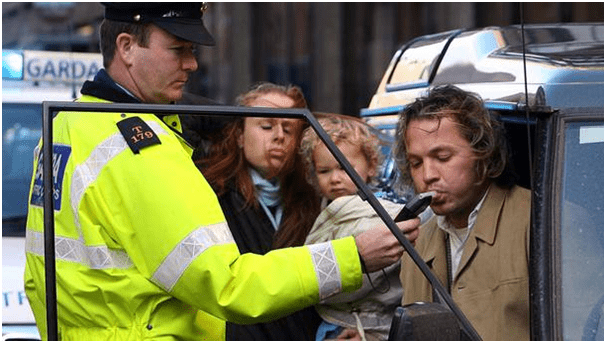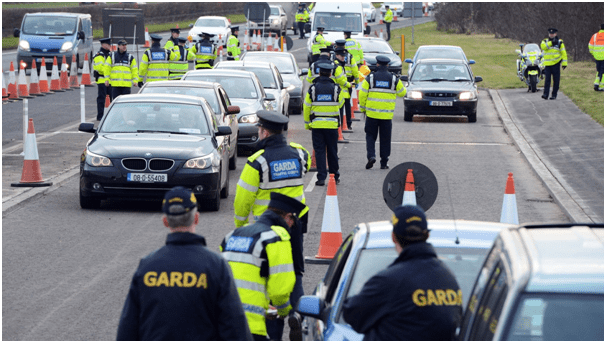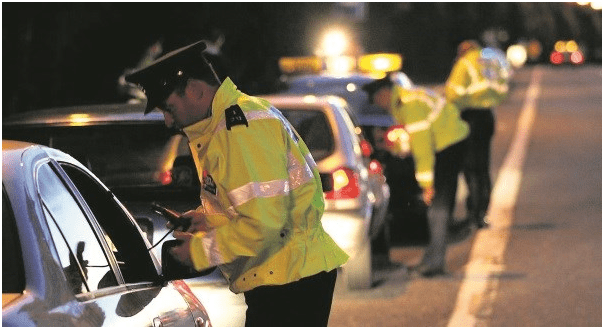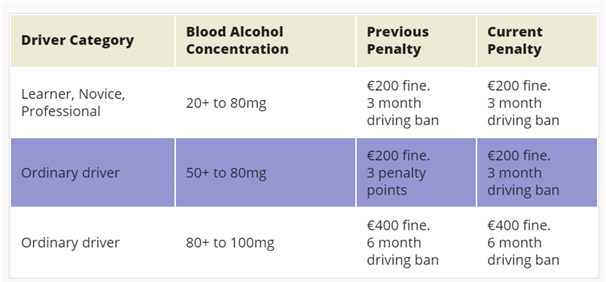Drinking Driving Laws in Ireland That You Should Take Care Of

The recent drive to arrest people for driving while intoxicated shows that Ireland has strict drinking-driving laws. Gardai tests people at MIT checkpoints across the cities mostly on holidays and weekends. If you are not aware of what Gardai is then a Garda Síochána meaning “the Guardian of the Peace”), more commonly referred to as the Gardaí or “the Guards”, is the police service of the Republic of Ireland. The service is headed by the Garda Commissioner who is appointed by the Irish Government. Its headquarters are in Dublin’s Phoenix Park.
Gardai have urged drivers to “stay safe on roads, reduce speed and never ever drink and drive”. New drunk driving laws in Ireland have left people confused about when it is safe to drive after enjoying a few pints the night before.
Table of Contents
Drink Driving Laws in Ireland

Drink drivers now face a three-month driving ban if they get behind the wheel and are found to have a blood alcohol concentration between 50mg and 80mg. This replaced previous legislation that had previously issued penalty points for some motorists. Irish motorists have been warned against relying on off-the-shelf personal breathalyzers. The warning comes in light of increased early morning roadside checks by the gardai across the country.
Drinkaware has reported a sharp rise in queries from members of the public about driving the day after consuming alcohol.
Drivers have been advised that the time of their last drink at night will affect the amount of alcohol in their system the next morning. It takes an hour to process one standard drink and experts warn that there’s “no quick fix”. One standard drink includes half a pint of beer, stout or lager, or a small glass of wine (100ml), or a pub measure of spirits (35.5ml). Here are the driving laws in Ireland.
When not to drive – driving laws in Ireland
- If you have 10 pints of Guinness, Heineken, Carlsberg, or some other lager or stout in and around 4.5%. According to Drinkaware, you cannot get into the car for 20 hours after you finish your final drink. So if you retreat to bed at midnight, you cannot get back into a car until 8 pm the following night.
- If you polish off one bottle of red or white wine you will have to stay off the road for eight hours after you finish.
- If you are sticking to vodka and manage to down 10 altogether, that would mean no driving for 10 hours after your final drink.
- 12 pints and 6 vodkas with mixers and going for a proper wild night, drinking in the pub for the day, and then going to a nightclub and switching to the vodka. This one will have you feeling particularly bad the next day and that is reflected in how long you have to stay off the road. You will have to avoid driving for 30 hours after your last drink, so basically, just stay away from the car for the weekend.
What About a Breathalyser?

Experts warn that there is nothing you can do to remove alcohol from your body any quicker apart from just waiting. Common myths like drinking coffee or having a shower will sober you up are untrue. Drinkaware has warned against relying on off-the-shelf personal breathalyzers saying they are not developed using the same standards as those used by the gardai.
According to Sheena Horgan, the CEO of Drinkaware, “The reality is that these off-the-shelf breathalyzers are not developed using the same medical and safety technology standards as those used by officials like An Garda Síochána. While a personal breathalyzer can be useful for information purposes, the results should not be taken as a clear indication that you are under the limit. There is still a potential chance that you will be over the limit if stopped at an official Gardai checkpoint.
Try here the Drinks Calculator to know how many hours alcohol will take to leave your system.
Fines and Punishment

Ordinary fully licensed drivers detected by An Garda Siochana with a blood alcohol concentration (BAC) level of between 50mg and 80mg, will receive an automatic three-month driving ban and a €200 fine.
The penalties for learner, novice, and professional drivers remain the same at three months of disqualification from driving and a fine of €200.
The law came into force on October 26 last year. Ms. Horgan adds that with almost 1,000 arrests for drunk driving over the holidays period, it’s clear that people are still taking the risk the following day. If you have even the slightest doubt that you are over the limit, there should be no justification for driving the morning after. Remember, the minimum penalty for drunk driving is now a three-month driving ban so the risk is simply not worth it. So next time you are drinking remember not to drive for the safety of your life and other’s life too.
Read: The 11 Best Irish Beers You Can Try At Ireland Pubs And Bars
FAQ:
1. What is the legal blood alcohol concentration (BAC) limit for drivers in Ireland?
The legal blood alcohol concentration (BAC) limit for most drivers in Ireland is 50 milligrams of alcohol per 100 milliliters of blood (50mg/100ml). For novice drivers, professional drivers, and drivers aged 21 or under, the limit is even lower, at 20mg/100ml.
2. What happens if I exceed the legal BAC limit while driving in Ireland?
If you are caught driving with a BAC exceeding the legal limit, you may face severe penalties, including fines, disqualification from driving, and even imprisonment. The exact consequences depend on the level of alcohol detected and the individual circumstances of the case.
3. Are there random breath tests in Ireland?
Yes, the Garda Síochána (Irish police) conducts random breath tests at checkpoints to detect and deter drink-driving. It is an offense to refuse to undergo a breath test when asked by a Garda.
4. Can I lose my driver’s license for drunk driving in Ireland?
Yes, if you are convicted of drunk driving in Ireland, you may face a disqualification from driving. The length of the disqualification period depends on the offense’s severity and whether it is a first-time or repeat offense.
Recommended Read: 5 Bars Voted the Best Irish Pubs Around the World
Conclusion
The crackdown on driving under the influence in Ireland underscores the seriousness with which authorities are taking the issue of public safety on the roads. The implementation of stricter laws, the increase in roadside tests, and the high penalties for those caught driving while intoxicated are designed to discourage drivers from getting behind the wheel after consuming alcohol.
The Garda Síochána, Ireland’s police service, is at the forefront of these initiatives, continually urging drivers to remain responsible and safe on the roads. Given the increased queries from the public and the popularity of over-the-counter personal breathalyzers, it’s clear that there’s still some confusion among drivers about how long they need to wait before they’re safe to drive after drinking.
The key takeaway here is that the body takes time to process alcohol, and there are no shortcuts. The best way to ensure safety is simply to wait the appropriate amount of time before driving — whether that means catching a cab, arranging for a designated driver, or staying overnight.